John Durham—the United States attorney tasked by Attorney General William Barr to conduct a wide-ranging inquiry into the origins of the Justice Department’s and FBI’s Russia inquiries—contributed to a September 2019 statement released by Barr and the Justice Department intended to undermine efforts to impeach President Trump. Durham approved portions of the statement describing his own investigation, in language first proposed by aides to Barr, and then contributed a version of his own, according to three people knowledgeable about the matter. One of these individuals allowed me to review emails and other related records detailing exchanges between Durham and aides to the attorney general related to the preparation of the statement.
Durham’s previously unreported role in preparing the statement raises questions as to whether Durham, who is the United States attorney for Connecticut, violated Justice Department guidelines and policies that prohibit prosecutors from discussing ongoing criminal investigations. These guidelines stipulate that prosecutors should “not confirm the existence or otherwise comment about ongoing investigations” or even merely confirm “the existence of an ongoing investigation or comment on its nature or progress before charges are publicly filed.” Federal prosecutors ordinarily consider such standards to be an “inviolable rule”—and for good reason: Commenting on an ongoing investigation can unfairly damage the reputations of individuals who have been investigated but never charged; place cooperating witnesses in danger; and prejudice prospective jurors against, and violate the due process rights of, potential defendants.
In December 2019, when Durham made additional public comments regarding his investigation, his actions were met with swift and severe criticism by former Justice Department officials, private oversight and ethics groups, and members of Congress. In this similar instance, Durham issued a public statement asserting that he disagreed with a single, relatively minor finding of an investigation carried out by the Justice Department’s inspector general, Michael Horowitz, who conducted his own inquiry of many of the same matters Durham was looking into. The Washington Post ran a front-page story, which—while noting that Durham, a 35-year veteran of the Justice Department, enjoyed a “stellar” reputation—said Durham’s public comments raised questions as to whether he was “carrying out a conservative political errand.”
Former Attorney General Eric Holder, who served during the Obama administration and knew and worked with Durham for over a decade, commented that he was “troubled by [Durham’s] unusual statement,” counseling him: “Good reputations are hard-won in the legal profession, but they are fragile; anyone in Durham’s shoes would do well to remember that, in dealing with this administration, many reputations have been irrevocably lost.”
Durham’s own comments regarding his investigation were coordinated to coincide with comments made by the attorney general. Barr has frequently commented on Durham’s investigation to an extent unprecedented for an attorney general, not just in terms of the sheer number of comments he has made but also because his comments have been political in nature. Barr has attacked the president’s political adversaries and exploited his comments to attempt to undermine the president’s impeachment and, later, to assist in the president’s reelection campaign. In doing so, Barr clearly violated Justice Department guidelines and policies prohibiting such public comments.
The new disclosures in this story are almost certain to draw even greater scrutiny of Durham’s conduct. Durham’s contribution was to an official DOJ statement produced by Barr with the goal of undermining the constitutional process of impeachment about to get underway. It was written with the intent of influencing House members as they considered whether to vote for or against articles of impeachment, and senators should they be called to serve as jurors during a trial of the president in the Senate. As I previously reported for The Washington Spectator, that statement, to which we now know Durham contributed, was generated by the attorney general at the request of President Trump and contained misleading and false information that provided ammunition for defenders of the president and served as pretext for Republican senators to vote for Trump’s acquittal. It is unclear whether, when Durham contributed to Barr’s statement, Durham fully understood that Barr had sought his contribution for Barr’s own political ends.
From the outset, Barr’s decision in April 2019 to have Durham investigate the very Justice Department officials who investigated Trump, his closest aides, and even the president’s family members, was rightly viewed with suspicion. Trump had pressured Barr’s two predecessors, Attorney General Jefferson Sessions and Acting Attorney General Matthew Whitaker, to conduct such an investigation, but both men demurred before Barr agreed to do so. Those under investigation included the Justice Department and FBI officials who oversaw the DOJ’s and FBI’s counterintelligence and criminal investigations into covert efforts by Russia during the 2016 presidential election to help elect Trump and into whether aides to Trump or even Trump himself encouraged or aided those efforts.
Many of the current and former Justice Department and FBI agents under investigation by Durham not only investigated the president and those close to him; they were also witnesses against the president in special counsel Robert Mueller’s probe of whether Trump obstructed justice by attempting to shut down the investigations of ties between Russia and his aides. Trump had attempted to discredit and intimidate these officials who were witnesses against him by extralegal means—through multiple potential acts of obstruction of justice, investigated by Mueller and detailed in the report containing the findings of Mueller’s investigation.
Now that Barr had directed Durham to investigate these very same people, Trump had once again been able to continue his efforts to discredit and intimidate them as potential witnesses. What Trump once did through extralegal means, and perhaps by illegal means, he has now been able, thanks to Barr, to do through legal means. One senior Justice Department employee openly wondered out loud to me recently whether one might consider the investigation to have been conducted “under the color of the law.”
For these reasons, Durham had good cause to want to protect the independence and integrity of his investigation by keeping Barr at arm’s length, former and current federal law enforcement officials told me. But Durham has done just the opposite. Documents obtained under the Freedom of Information Act by a progressive advocacy group, American Oversight, indicate that Barr and Durham have met numerous times to discuss the investigation. The attorney general personally asked foreign intelligence officials to cooperate with Durham’s investigation. Barr and Durham traveled to Italy together, where they urged Italian officials to cooperate with Durham. President Trump himself telephoned Australia’s prime minister, Scott Morrison, at Barr’s suggestion, to ask his nation to aid Durham’s inquiry. By contributing a description of his investigation to Barr’s statement of September 25, 2019, Durham has drawn his own efforts even closer to Barr’s political agenda, providing fodder for those who have questioned whether Barr should have ordered such an investigation in the first place.
The September 25, 2019, Justice Department statement came out one day after House Speaker Nancy Pelosi announced formal impeachment proceedings against the president. The impeachment inquiry centered on President Trump’s withholding of almost $400 million in military aid to Ukraine unless that country’s new president, Volodymyr Zelenskiy, agreed to announce three investigations that would be advantageous to Trump’s 2020 presidential reelection campaign. Trump first wanted Zelenskiy to announce that his government was conducting a criminal investigation of Joe Biden and his son Hunter. Hunter had once sat on the board of a Ukrainian gas company, Burisma, and Trump and his allies in politics and the media claimed that Joe Biden had pressured Ukraine to fire a state prosecutor to shut down an investigation of Burisma that might implicate his son in some wrongdoing. Despite the fact that these allegations against Joe Biden have been repeatedly disproved and debunked, Trump and his allies have attempted to resurrect them once again, in the closing days of the 2020 presidential campaign.
Trump had also wanted Zelenskiy to investigate other since-debunked conspiracy theories that it was Ukraine, not Russia, that had hacked Hillary Clinton’s emails and that Ukrainian officials had intervened on Clinton’s behalf to win the 2016 presidential election. Trump and his allies have never been able to offer any credible evidence for the purported Ukrainian plots. U.S. intelligence agencies had already concluded that these allegations were in fact conspiracy theories that had originated with and been created by the GRU, Russia’s military intelligence agency, in order to deflect attention away from Russia’s very real covert interference in the 2016 presidential election to help elect Trump and defeat Hillary Clinton. In August 2020, a bipartisan report released by the Senate Intelligence Committee confirmed those conclusions.
One key argument at the core of Trump’s defense during his impeachment by the House of Representatives and his trial in the Senate was that Trump had not withheld the military assistance to Ukraine to aid his reelection, but rather that the president was determined to get to the bottom of what he believed to be very real and serious malfeasance. If Trump’s defense team could credibly argue that Trump was acting in good faith and for legitimate policy reasons in seeking the investigations, the president’s actions could be portrayed not only as excusable but even laudable—and thus not impeachable acts. That reasoning, in turn, could serve as a pretext for Republican senators to vote for acquittal. That is where Durham’s utility to Barr and those acting in the president’s defense came in. By asserting that Durham was investigating matters related to Ukraine, the September 25, 2019, Justice Department appeared to confirm that Trump’s allegations were more serious than presidential conspiracy theories, and contributed to the false narrative that, in asking Zelenskiy to investigate, Trump was acting in the national interest instead of his self-interest.
According to internal Justice Department emails and other records I was able to review, Durham was asked by aides to Barr to provide a description of his investigation in regard to Ukraine. Whatever Durham’s own intentions, Trump and Barr and the president’s legal defense team were able to exploit those comments to argue that Trump had legitimate reasons to seek out the investigations by Ukraine, because Durham considered the issues legitimate enough to investigate as well.
The portion of the statement that Durham contributed appears as follows:
A Department of Justice team led by U.S. Attorney John Durham is . . . exploring the extent to which a number of countries, including Ukraine, played a role in the counterintelligence investigation directed at the Trump campaign during the 2016 election. While the Attorney General has yet to contact Ukraine in connection with this investigation, certain Ukrainians who are not members of the government have volunteered information to Mr. Durham, which he is evaluating.
Carefully read, the Justice Department’s statement, though technically accurate, was misleading. For one, it had earlier been reported in the press that some portions of Durham’s inquiry had evolved from what was once an administrative review into a criminal investigation. But no portion of Durham’s investigation regarding Ukraine was subject to a criminal investigation. The September 25 statement thus created the impression, without specifically affirming it, that Durham’s investigation touching Ukraine, too, was a criminal investigation. It was not.
The DOJ statement also gave the impression that Durham was investigating allegations that Ukraine had interfered in the 2016 presidential election. This was not true, either. Durham’s investigation involved only the gathering of information from private Ukrainian citizens who were involved in, or well-informed about, Russia’s efforts to interfere in the U.S. presidential election. The DOJ statement was both misleading on matters of fact and strategic in its timing—it lent credence to allegations that were baseless, and it coincided with the beginning of the House impeachment inquiry.
Durham declined to be interviewed or comment for this story. Kerri Kupec, the director of the Justice Department’s Office of Communications and Public Affairs, told me: “I am fully confident in the statement’s veracity and accuracy.”
Justice Department guidelines and rules, in turn, reflecting long-standing Department traditions and norms, strictly prohibit comments made by federal prosecutors regarding ongoing investigations, except in the rarest of circumstances, none of which apply to the two instances in which Durham has made such comments. Thus, the input and actual wording that Durham provided for Barr’s September 25, 2019, statement, which described Durham’s investigation, as well as his other public statement on the issue, appear to violate that doctrine.
Other portions of the full statement also appear to violate the same guidelines. This went largely unnoticed at the time—because Barr had by then so frequently and blatantly violated those very same rules, including by commenting on the Durham investigation, that his doing so no longer was considered newsworthy. The public, the press, and even members of Congress, had become inured to his recidivism. Durham himself escaped scrutiny for his part in crafting a portion of the statement, for an entirely different reason: Nobody knew of his role at the time.
Over time, Barr’s comments became increasingly partisan as his disregard for Justice Department guidelines prohibiting such pronouncements became more flagrant and frequent. Barr failed to produce any evidence to support any of the serious allegations he was making—that senior officials of the Department of Justice, the FBI, and the intelligence community who had investigated Trump had been disloyal to their country and abused their positions to frame Trump and attempt to drive him from office, and in their zeal to do so broke the law. Barr said he could not provide any evidence of wrongdoing because to do so would be to discuss an ongoing criminal investigation—the very thing he was actually doing in the first place.
While discussing Durham’s investigation, Barr’s rhetoric has also increasingly paralleled that of Trump. In contrast to the president, Barr has delivered his comments in a restrained manner; those of Trump have been coarse and hyperbolic. Because of Barr’s temperate manner, his standing in the Washington establishment, and his stature as attorney general, Barr has become a more palatable and legitimizing messenger of Trump’s unrelenting attacks on the Justice Department and FBI than Trump himself. Nonetheless, Barr has suggested that the DOJ’s and FBI’s investigations of the president were “one of the greatest travesties” in American history, a “bogus scandal” undertaken to “sabotage” Trump’s presidency. Trump has called those investigations a “hoax” and an “attempted coup.” Barr has said that this “bogus scandal” was “fanned and hyped by a completely irresponsible press.” Trump incessantly blames the “fake media.”
The Justice Manual, which codifies ethical standards for all Justice Department employees—among them, of course, attorneys general—asserts that “DOJ generally will not confirm the existence of or otherwise comment about ongoing investigations.”
In explaining the necessity of such rules, the Manual says this:
Disseminating non-public, sensitive information about DOJ matters could violate federal laws, employee non-disclosure agreements, and individual privacy rights; put a witness or law enforcement officer in danger; jeopardize an investigation or case; prejudice the rights of a defendant; or unfairly damage the reputation of a person.
There are only a relatively small number of enumerated exceptions to these prohibitions. Prosecutors and FBI agents, for example, can discuss an open case, the manual states, under only the most extraordinary circumstances, such as a public emergency, when the “release of information is necessary to protect the public safety.” But that exception does not appear even remotely to apply to either Barr’s or Durham’s repeated commenting on the Durham investigation, Barr commenting on Durham’s investigation, or Durham’s commenting on his own investigation.
Miriam Baer, a former federal prosecutor for the Southern District of New York, who is now a professor at the Brooklyn Law School, told me that it is imperative for prosecutors to abide by the guidelines because “if prosecutors seek charges against a given individual, we want to do so solely on the basis of evidence that they have collected, and not because they have been influenced by public opinion.” Baer adds that “when a prosecutor comments on an investigation, he or she invites and shapes the public commentary or public opinion on that given case,” which, in turn, can lead to a clamor by the public to bring charges that are not warranted.
Gene Rossi, a former federal prosecutor for more than 30 years, told me, “The last thing an Attorney General should be is a political parrot and an amen corner for Donald Trump’s crazy and outlandish claims about the ‘Deep State’ and a left-wing takeover of the FBI.”
More than a dozen current DOJ officials, ranking from assistant U.S. attorneys to some in senior positions, have expressed similar views to me but were unable to do so on the record because of concerns about retaining their jobs. Their only recourse if they speak out is to resign or be fired. Some are taking that route: Phillip Halpern, a prosecutor with the U.S. attorney’s office in San Diego who resigned after serving 36 years as a career prosecutor, wrote in his local newspaper: “Barr’s longest-running politicization of the Justice Department is the Durham investigation—a quixotic pursuit designed to attack the president’s political rivals,” in the service of which Barr has engaged in the “parroting of the president’s wild and unsupported conspiracy theories.”
Baer also points out that the guideline prohibiting comments about ongoing investigations that Barr has so willfully disregarded “protects individuals from being punished in the press for allegations for which evidence is ambiguous or lacking. The government poses tremendous power—to charge, to collect evidence. If the government wants to speak to the public or the press, it can do so through its indictments in trials, and the briefs it files in court.”
Rossi adds: “Our Constitution presumes and assumes that every person is innocent until proven guilty. A prosecutor who oversteps their role and convicts someone before charges are brought or a case is proven at trial is committing a cardinal sin.”
Barr himself, prior to his confirmation as attorney general, clearly understood not just the legal and institutional constraints on commenting about public investigations but also the practical ones. Barr’s frequent comments on the Durham investigation stand in sharp contrast to his outspokenness in decrying such actions by others.
During his Senate confirmation hearings to be attorney general, Barr justified President Trump’s firing of James Comey as FBI director, saying Comey deserved to be fired for publicly commenting about the decision not to charge Hillary Clinton for her use of a private email server and using a private email address for her official duties while secretary of state.
Barr told the Senate Judiciary Committee on January 15, 2009: “If you are not going to indict someone, then you don’t stand up there and unload negative information about the person. That’s not the way the Department of Justice does business.” Barr also told the senators that Comey’s conduct illustrates “what happens when you start ignoring the normal procedures and established practices [of the Department], you dig yourself a deeper and deeper hole.”
Durham, too, has long been on the public record as endorsing the view that federal prosecutors should never comment on ongoing investigations. In public remarks that Durham delivered in March 2018, at the University of St. Joseph, a small Connecticut college, Durham said: “It is as important for the system for prosecutors to protect the secrecy of proceedings, not because we want them to be secret, but because we’re not always right. Maybe accusations that are lodged against somebody are untrue. And again, we can destroy the person or persons if that information gets out.”
Sam Buell, a Duke University law professor—who has previously served as a federal prosecutor in New York, Boston, Washington, D.C., and Houston—worked closely with Durham on several cases while Buell served in Boston. Durham, Buell, told me, was “famous for being tight lipped” and had a “reputation for a guy who keeps his cards very close.” When Durham spoke at the University of St. Joseph, a fellow prosecutor, who introduced him, told those present this was likely their “only chance ever to hear John speak about his work outside a courtroom,” further noting that he is “notoriously shy about speaking about himself or what he does.” Another former federal prosecutor who worked with Durham told me that, in his view, the one word more than any other that best describes Durham, both personally and professionally, is “inscrutable.”
Durham and Buell worked particularly closely together building a case against Joseph Connolly, a rogue FBI agent, who was ultimately convicted on charges of racketeering, obstruction of justice, and murder. Connolly was convicted for providing information to the notorious mobster Whitey Bulger. Bulger had ordered the brutal murders of two men based on information Connolly provided him that they might inform on Bulger.
Buell recalls Durham as “fearless” and “unflappable” in his pursuit of Connolly. But he also recalls how Durham kept his own counsel, among other ways, by never speaking to the press about the case or allowing others in his office to do so. During the Connolly case, Buell recalls, “reporters gave up even attempting to learn anything from him or his office.” That makes it even more puzzling, Buell says, that Durham has now set aside not only DOJ guidelines but his own personal practice of not speaking to ongoing investigations.
*
As indicated above, the new instance disclosed in this story of Durham’s public statements on his investigation was not the only time he has engaged in such conduct. In the previous case, Durham commented on his own investigation when he had a disagreement with the findings of the Justice Department’s inspector general, Michael Horowitz.
On December 9, 2019, the inspector general released a 476-page report that was scathingly critical of some DOJ and FBI officials for their conduct during the course of their Russian investigations. Most importantly, Horowitz uncovered what he described as “significant inaccuracies and omissions” related to the FBI’s and DOJ’s requests for warrants for their electronic surveillance of former Trump campaign aide Carter Page. Horowitz charged that DOJ and FBI officials “failed to meet the basic obligations to ensure” that the applications for surveillance were “scrupulously accurate.”
At the same time, Horowitz’s comprehensive and exhaustive investigation uncovered absolutely no evidence whatsoever that political bias played any role in the conduct of Justice Department and FBI officials during their Crossfire Hurricane investigation, the codename given by the FBI to the Russia inquiry. The inspector general’s report concluded: “We did not find documentary or testimonial evidence that political bias or improper motivation influenced the decisions” of prosecutors or FBI officials during the course of the investigation. By coming to such a conclusion, Horowitz had taken a substantial wrecking ball to Trump’s and Barr’s claims that DOJ and FBI officials were conspiring to sabotage Trump’s presidency out of political motivations.
The inspector general’s report and Durham’s investigation are largely duplicative, which has raised yet other questions as to why Barr initiated the Durham probe in the first place. A former senior Justice Department official who worked in the Department’s National Security Division told me he believed that Barr wanted someone to investigate these issues who reported directly to him and over whom he could exercise some control. The Justice Department’s inspector general conducts their investigation largely independent of the Justice Department hierarchy. The Department’s own website describes its inspector general as a “statutorily created independent entity.” Oftentimes, an attorney general will only learn the results of an inspector general’s investigation when it is complete. Horowitz, sources have told me, has kept Barr at an even greater arm’s length than other attorney generals, wary of Barr’s unprecedented politicization of the Department. In sharp contrast, Durham reports directly to Barr, who as attorney general, is his boss (and, as described above, involved himself with Durham’s investigation to a degree rare for an attorney general).
The disagreement between Durham and Horowitz, which Durham publicly commented on, was arcane and minuscule. As Liam Brennan, a former federal prosecutor who headed the Public Corruption Task Force for the United States attorney in Connecticut, explained in a column on the website Just Security:
According to Horowitz’s testimony before Congress, Durham told him that he disagreed with the assessment that the FBI had sufficient predication to open a full investigation at the outset. Instead, Horowitz said Durham took the position that the FBI should have opened only a preliminary investigation. But the differences between a preliminary and full investigation are so small (as Horowitz himself noted), that the distinction never warranted the noise the DOJ made. Indeed, had the investigation been opened as a preliminary investigation, the FBI still would have been permitted to use all the same tactics they employed at that point.
On the very same day the inspector general made public his report, Durham, noting his “utmost respect” for the inspector general, released a formal statement, posted on the Justice Department’s website, saying that “based on the evidence [we have] collected to date . . . we advised the Inspector General that we do not agree with some of the report’s conclusions as to predication and how the FBI case was opened.”
Barr released a statement of his own about the findings of the inspector general and Durham’s ensuing comments, quoting Horowitz’s report when it suited his purposes to legitimize the president’s conspiracy theories about being framed by the Justice Department and FBI, then citing Durham’s comments to discredit other portions of the Horowitz report that debunked their favored narrative.
In his statement, also posted on the Department of Justice’s website, Barr attacked his own Justice Department, as well as the FBI, in a way previously unprecedented in American history.
Barr claimed in the statement:
The Inspector General’s report now makes clear that the FBI launched an intrusive investigation of a U.S. presidential campaign on the thinnest of suspicions that, in my view, were insufficient to justify the steps taken. . . .
It is also clear that, from its inception, the evidence produced by the investigation was consistently exculpatory. Nevertheless, the investigation and surveillance was pushed forward for the duration of the campaign and deep into President Trump’s administration.
Horowitz’s report came to no such conclusions, and the evidence that was contained within its pages contained scant evidence to support Barr’s allegations.
Barr then undertook a round of media appearances, further exploiting the inspector general’s report and Durham’s criticism of it, to make a series of even more serious allegations unsupported by either, in even less measured language. On December 10, the day after the release of the Horwitz report, Barr declared on NBC:
From a civil liberties standpoint, the greatest danger to our free system is that the incumbent government use the apparatus of the state, principally the law enforcement and intelligence agencies, both to spy on political opponents but also to use them in a way that could affect the outcome of an election.
Barr further told NBC: “I think our nation was turned on its head for three years based on a completely bogus narrative that was largely fanned and hyped by a completely irresponsible press. I think there were gross abuses . . . and inexplicable behavior that is intolerable in the FBI.”
Of course, neither the Horowitz report not Durham’s statement said anything that even remotely supported Barr’s comments. Far from concluding that an “incumbent government use[d] the apparatus of the state” to “affect the outcome of an election,” the inspector general report concluded the very opposite, finding no “evidence that political bias or improper motivation” came to play during the DOJ’s and FBI’s Russia investigation. Durham’s comments related to the relatively minor issue as to whether there was necessary predication to have initiated the Russia investigation, a matter of little interest to anyone outside lawyers and prosecutors.
Nevertheless, millions of Americans saw Barr’s appearances on NBC or Fox, or read about them online. Few if any had ever heard of John Durham.
On September 17, ten Democrats on the Senate Judiciary Committee, and, more recently, the chairs of the House Judiciary Committee, House Select Committee on Intelligence, House Administration Committee, and House Committee of Oversight and Reform, asked the Justice Department’s inspector general to investigate Barr and Durham’s investigation.
Among other issues, the members of Congress asked that the inspector general investigate whether Barr and Durham had violated Justice Department guidelines by publicly commenting about Durham’s investigation. But they did not stop there. Barr had been pressuring Durham to release a public report detailing the findings of his investigation before Election Day. Barr even appeared on Fox News, promising Sean Hannity that there were soon “going to be developments, significant developments” regarding the Durham probe, “before the election.” Justice Department guidelines and policies, however, discourage prosecutors from bringing criminal charges or doing anything else within two months of an election that might affect its the outcome.
On this occasion, Durham simply refused what the attorney general was demanding.
That in turn caused Donald Trump to lash out: “Unless Bill Barr indicts these people for crimes—the greatest political crime in the history of our country—we’ll get very little satisfaction, unless I win,” he said, “[T]hese people should be indicted. These are people who spied on my campaign. And we have everything. And I say, Bill, we’ve got plenty, you don’t need any more.” The president of the United States vowed: “I won’t forget it.”
Murray Waas is an independent journalist who writes frequently about rule of law and national security issues, and where the two intersect. He has broken significant stories on the special counsel’s investigation of President Trump and related controversies for the New York Review of Books, Vox, Foreign Policy, and The New York Times. He has previously worked as the company wide investigations editor for Vice, as an investigative correspondent for Reuters, and as a senior editor for National Journal. Waas has been a finalist for the Pulitzer Prize, a winner of Harvard University’s John F. Kenney School’s Goldsmith Prize for Investigative Reporting, and a winner of the Barlett & Steele Business Investigative Reporting Prize.

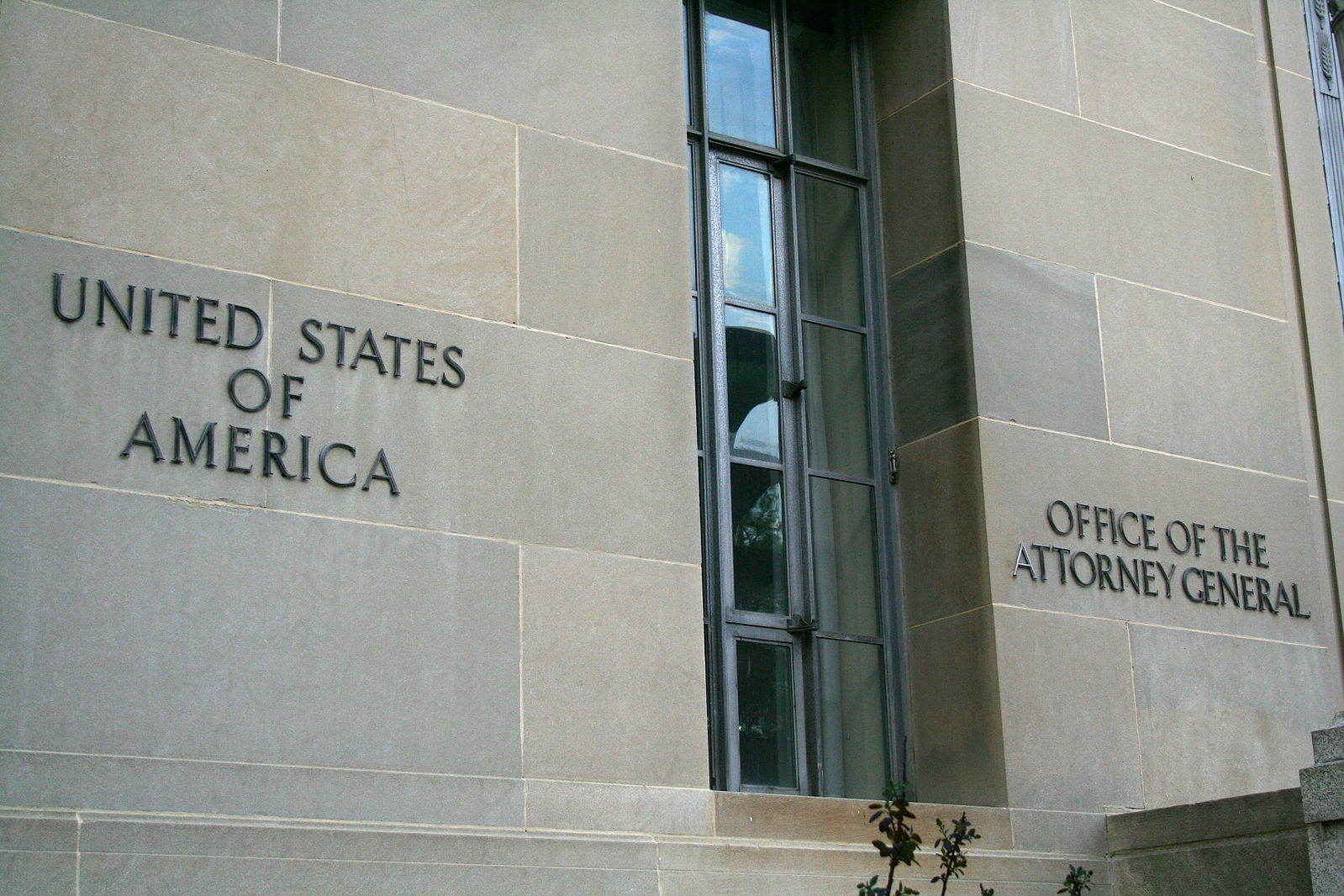
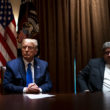
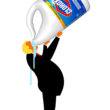
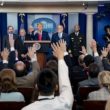
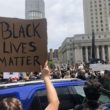

0 Comments